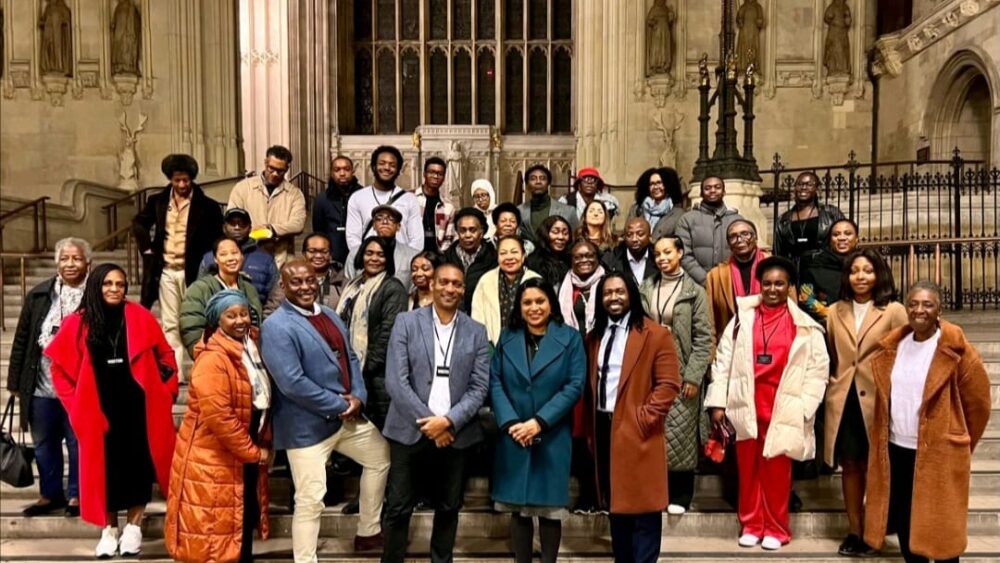
Empowering Minorities in Policy Advocacy: Breaking Barriers for a More Inclusive Society
Written By Ruth-Simone Lee, Legal Policy Advisor
Introduction
A consistent theme in English society is the persistent barriers faced by ethnic minorities when it comes to policy advocacy, a key formative process preventing them from being involved in the decision-making procedures that quite plainly shape their lives and those of the people around them. Although minority communities comprise over 14% of the voting population, there is a glaring disparity in which minority voices are often stifled through underrepresentation during the policy-development process. This demonstrates an urgent need for systemic change and greater integration of the perspectives of such a key demographic through the creation of inclusive spaces.
Promoting and empowering the involvement of minorities in policy advocacy is categorically crucial and significant in addressing the persistent barriers they encounter. By actively disassembling these obstacles, we can cultivate a society that is more inclusive and equitable, recognizing and incorporating the diverse perspectives and needs of minority communities into the policies that shape our collective future.
Understanding the Barriers
To thoroughly dismantle the typical hurdles confronted by minority groups in the UK when participating in policy advocacy, it is categorically essential to examine and scrutinize the specific difficulties they encounter within the UK context.
These challenges include:
- Limited representation in decision-making bodies: Underrepresented minority communities frequently encounter a lack of inclusion in pivotal decision-making entities, including parliamentary committees and advisory boards. This deficiency in representation results in the formulation of policies that may not sufficiently address their distinct needs and concerns.
- Lack of diversity in policymaking processes: The policymaking procedures in the UK often showcase a lack of diversity, characterised by limited input from minority communities. This absence of diverse perspectives can lead to policies that overlook the complete spectrum of experiences and needs of minority groups, thereby perpetuating systemic inequalities.
- Institutionalised biases and discrimination: Systemic biases and discriminatory practices within institutions may impede the influence of minority communities in policy advocacy. Unconscious biases have the potential to influence and shape policymakers’ perceptions and decisions, potentially neglecting the distinctive perspectives and needs of minority groups.
- Socioeconomic disparities: Substantial socioeconomic gaps present formidable obstacles to effective policy advocacy for minority groups. Constrained access to resources, education and employment prospects can undermine and diminish their ability to actively engage in advocacy initiatives.
- Language and cultural barriers: Effective communication and engagement between policymakers and minority communities can be hindered due to language and cultural barriers. Limited proficiency in the primary language used in policy discussions may marginalise their voices, impeding their capacity to articulate their concerns and needs effectively.
- Access to resources and funding: The limited availability of resources and funding can hinder the capabilities of minority-led advocacy groups to actively engage in policy advocacy. Inadequate financial and organisational resources may constrain their ability to undertake effective research, formulate evidence-based proposals, and sustain long-term advocacy initiatives.
- Limited awareness and understanding of minority issues: The effectiveness of the policy-making process can be hindered by limited awareness and understanding of minority groups’ issues and needs amongst policymakers. Awareness can significantly be improved through advocating and promoting greater education and dialogue between policymakers and minorities. Through this process, the importance of addressing and tackling these unique difficulties faced by minority communities will become apparent and easier to challenge.
Overcoming the Barriers
Empowering minority communities in policy advocacy demands collective efforts and collaboration between policymakers and our communities.
The implementation of the following strategies can help surmount these barriers, and pave the way for the establishment of a more inclusive and representative society:
- Advocating for greater diversity and inclusivity: Further initiatives and efforts should be undertaken to foster diversity and inclusiveness within decision-making bodies. This includes advocating for increased representation of minority communities in parliamentary committees, advisory boards, and other key policy forums.
- Challenging implicit biases and discrimination: Addressing and confronting institutionalized biases and discrimination is crucial to overcoming obstacles that hinder the influence and impact of minority groups. This can be achieved through awareness campaigns, training programs, and policy initiatives aimed at promoting fair and equitable outcomes.
- Addressing socioeconomic disparities: By designing policies and programs that specifically address and target socioeconomic disparities, the barriers that hinder the influence of minority communities can be challenged. This could involve initiatives to improve access to resources, education, and employment opportunities, thereby empowering minority communities to engage more effectively.
- Providing language support and creating inclusive spaces: Initiatives should be made to offer language support and establish inclusive environments for individuals with diverse linguistic and cultural backgrounds. This can include translation services, targeted outreach, and the promotion of culturally sensitive policy dialogues.
- Ensuring access to resources and funding: It is vital to support and enhance the resource base for advocacy groups led by minorities. This can be achieved through funding opportunities, capacity-building programs, and partnerships with organisations committed to promoting equity and social justice.
- Promoting awareness and understanding: Increased education and dialogue are necessary to heighten awareness about issues affecting minorities among policymakers. Engaging in targeted outreach efforts, community dialogues, and educational programs can help.
Conclusion
Empowering minorities in policy advocacy is not solely about justice and equality; it also represents a pivotal stride toward constructing a more inclusive and representative society. By addressing and tackling the obstacles minority groups encounter, we can instigate meaningful change and guarantee that the voices of minority communities are acknowledged and esteemed in decision-making processes.
To achieve this, it requires collective action, collaboration, and commitment from advocacy organisations, community groups, policymakers, and stakeholders. It demands the recognition and amplification of diverse perspectives and experiences.
Through collaborative efforts, we can create and shape a policy landscape that mirrors the needs, aspirations, and voices of every segment of society. Empowering minorities in policy advocacy stands as a crucial stride toward fostering a more just and equitable future for the United Kingdom, where the rights and contributions of every individual are acknowledged and respected.
To collaborate with the Black Policy Institute (TBPI), individuals and organisations can engage in research partnerships, participate in policy advocacy efforts, take advantage of training and capacity-building programs. Lastly, collaboration can be achieved by providing financial support through donations and fundraisers.
By working together with TBPI, we can promote policies that work for the collective, amplify the voices of Black communities, and create meaningful change towards racial equity and justice in the UK.
